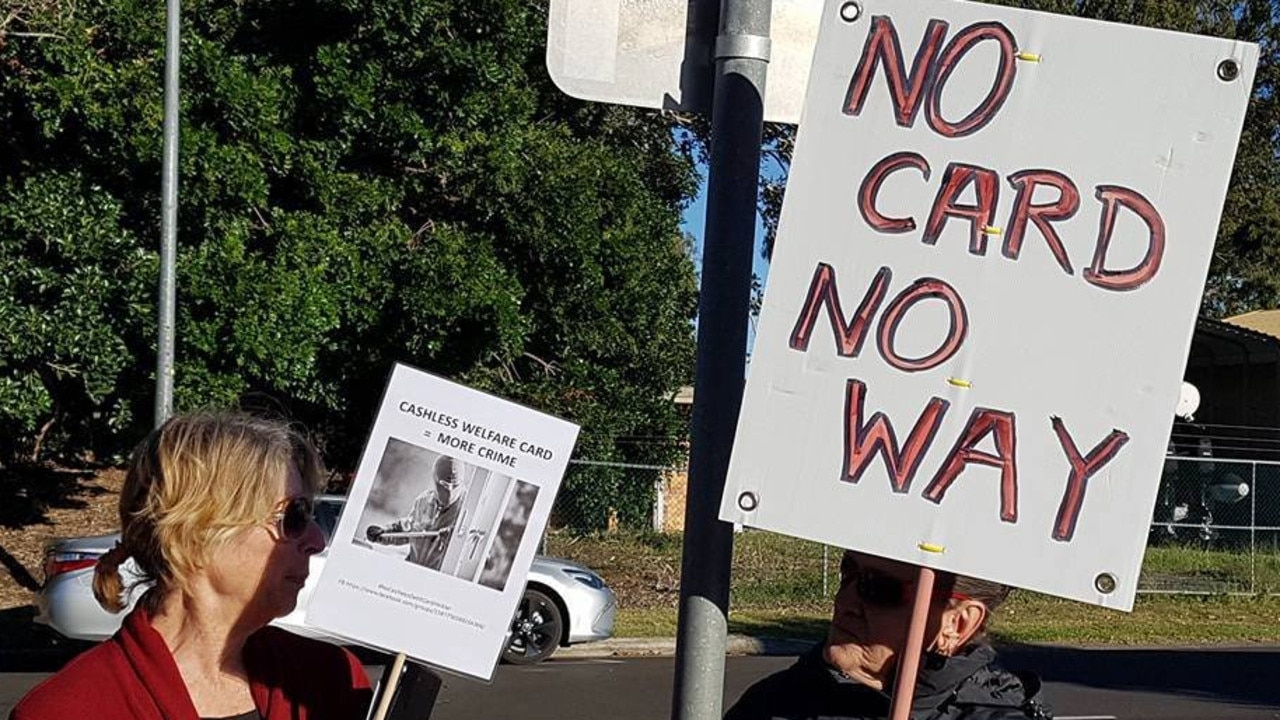Cashless debit card blocked $400,000 meant for booze, gambling
The cashless welfare card has blocked more than $400,000 from being spent on prohibited items such as alcohol in parts of Queensland during its trial, with thousands more about to be put on the scheme.
QLD News
Don't miss out on the headlines from QLD News. Followed categories will be added to My News.
The cashless welfare card has blocked almost half a million dollars being spent on alcohol, gambling and other contraband in Bundaberg and Hervey Bay during its first two-year trial, it can be revealed as another 2400 people are about to be put on the scheme.
It follows the government putting a hold on adding new welfare recipients on to the card in March last year as the social services system struggled under the surge caused by the pandemic.
Under the Cashless Debit Card trial, under 35s on JobSeeker and Youth Allowance have 80 per cent quarantined on the card to be used at stores for products and services other than alcohol, gambling or withdrawing cash, with about $200 each 28 days available to be withdrawn as cash.

The Courier-Mail has obtained data showing the card had blocked $413,000 that users had tried to spend on prohibited sales from January 2019 when the trial began to January 2021 in the Hinkler trial site which includes Bundaberg and Hervey Bay.
This includes $12,000 in betting or casino gaming, $134,000 in bars, taverns and night clubs, $62,000 at bottle shops, as well as $205,000 from cash vendors and wire transfers.
Social Services Minister Anne Ruston said Australians wanted to know taxpayer funds were being spent on the essentials and the CDC trial had shown a significant reduction in spending on alcohol and gambling.
“The Government has no issue with people having a beer or putting a punt on from time to time which is why welfare recipients get to keep 20 per cent of their payment in their regular bank account,” she said.

“What we are interested in is reducing the amount of taxpayer funded social security spent on alcohol and gambling products because, when consumed in large quantities, it can cause significant social harm for individuals, their families and communities and reduce job readiness.”
Meanwhile, from the start of April the freeze on new recipients coming on to the CDC will be lifted, with another 2456 people to be added in Bundaberg and Hervey Bay.
Services Australia will start sending the impacted people letters from April, then they will be given a month before the transition over.
“The pause was put in place in March last year to ensure that Services Australia could focus all of its resources on processing new payment claims at the beginning of the pandemic,” Senator Ruston said.
“Now that the number of Australians coming on to social security payments has returned to pre-pandemic levels it is appropriate to lift the pause.”






